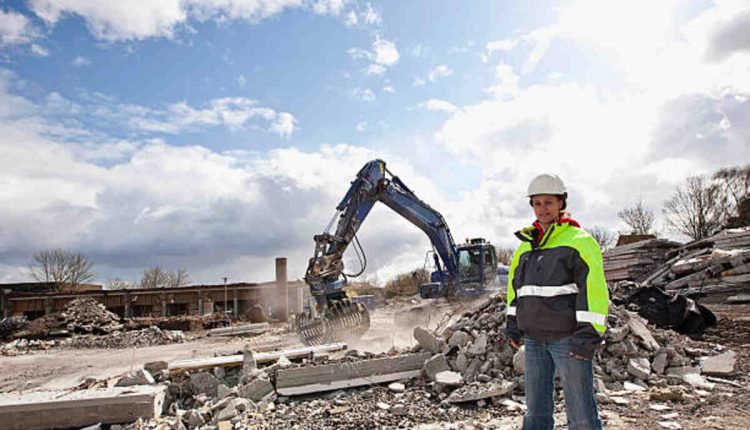Rebuilding may be cheaper in certain circumstances due to structural or location-based issues, for instance. Best way to find the Corpus Christi Demolition Contractor.
Other costs to consider can include municipal permits and inspection fees; disposal fees also add up; remember the expense of hiring an architect to determine whether any parts of the house can be saved by salvaging them; this expense should be noticed!
The Size of the House
Size plays an essential part in determining the total cost of house demolition. Larger homes tend to cost more due to labor and equipment requirements; additionally, hazardous materials necessitating exceptional removal and disposal methods add to this expense.
Location also plays an impactful role in determining the cost of demolition; typically, it is less expensive to demolish a home in rural areas than in urban neighborhoods. Furthermore, permits and inspection costs may increase costs further for any given project.
Once a house has been demolished, all debris must be cleared from its site – this includes dumpster rental fees, hauling charges, and disposal charges. Furthermore, an inspection should take place prior to deconstruction to make sure there are no hazardous materials, such as asbestos or mold, present that could hinder demolition efforts.
Rebuilding or demolishing depends on many factors, including damage severity, repairability, and personal preference. Rebuilding may be more expensive than wasting but may provide greater flexibility and return on investment. Furthermore, before making your decision, it’s essential to assess how demolition affects local building regulations as well as individual circumstances – a professional can help determine the ideal choice for you and your budget.
The Age of the House
Demolition may be more cost-effective than repair for homeowners facing difficulty in their houses. For instance, in cases of severe water damage and other problems that would not be cost-effective to resolve through repair and remodeling alone, demolishing it and starting over may make more sense than trying to fix or renovate it. Home age plays a factor as to whether tearing it down would make financial sense or rebuilding would.
Materials used to build the house also play a factor, with houses made from timber often costing less to demolish than homes constructed from bricks or concrete. Furthermore, size plays an integral part – more significant sites will usually require more machinery, which drives up costs significantly.
Before any demolition begins, it is imperative that all utilities – gas, electrical, and water services – are turned off and capped off. Failure to disconnect can lead to damaged services during demolition or hazardous waste issues later. Working with an architect beforehand is also recommended in order to plan new structures on your property before beginning demolition – this will prevent delays while assuring they are built correctly.
Asbestos should always be checked for prior to beginning demolition work. Due to its harmful qualities, asbestos requires additional fees and precautions when disposing.
The Accessibility of the House
Demolition costs vary based on the size and space features of a house. Large houses require more equipment for dismantling systems, making the process time-consuming and costly; also, larger houses generate more waste material for disposal. Location also affects demolition costs; rural locations tend to be cheaper than urban ones.
Before beginning demolition, it is crucial that all utilities, including gas, water, and electricity, are disabled. Furthermore, any debris or waste must be cleared from the site as any structural defects discovered during this process could significantly increase costs for your project.
Many municipalities require permits and inspections before demolition can begin, including capping off utility lines, asbestos/lead paint surveys, and any other required inspections. This can add up quickly if multiple inspections are necessary.
Consider other costs related to demolition, such as dumping and haul-away fees. It is wise to inform neighbors ahead of time about your plans for demolition in order to minimize noise and dust that could affect their neighborhood, as well as work with an architect before beginning demolition work in order to plan out your new home’s design – this will save both time and money in the long run.
The Environment of the House
Demolition involves more than simply smashing houses down; it’s an intricate process requiring careful consideration and extensive cleanup. Site preparation costs typically range between $1,000 and $5,000; this may involve securing utilities, installing safety barriers, and making the site ready for heavy machinery. It is wise to inform neighbors prior to starting demolition so they can prepare accordingly.
Local permits and inspection fees can significantly add to the expense of demolition. As these expenses can quickly add up, they must be factored into your budget. Furthermore, if the house contains hazardous materials like asbestos or lead-based paint, it requires special precautions or removal processes before demolition.
Deconstruction may seem like the more straightforward choice, but deconstruction offers an environmentally friendly solution that saves money. By minimizing waste production and recycling materials whenever possible, deconstruction helps reduce house demolition costs significantly. Consider all factors affecting demolition costs and create a realistic budget explicitly tailored to your unique needs and project goals. Ready to get started? Reach out to a local demolition expert now for a free, no-commitment estimate – they may save you a bundle!
Read also: Selective Demolition – Flexibility, Sustainability, And Efficiency


